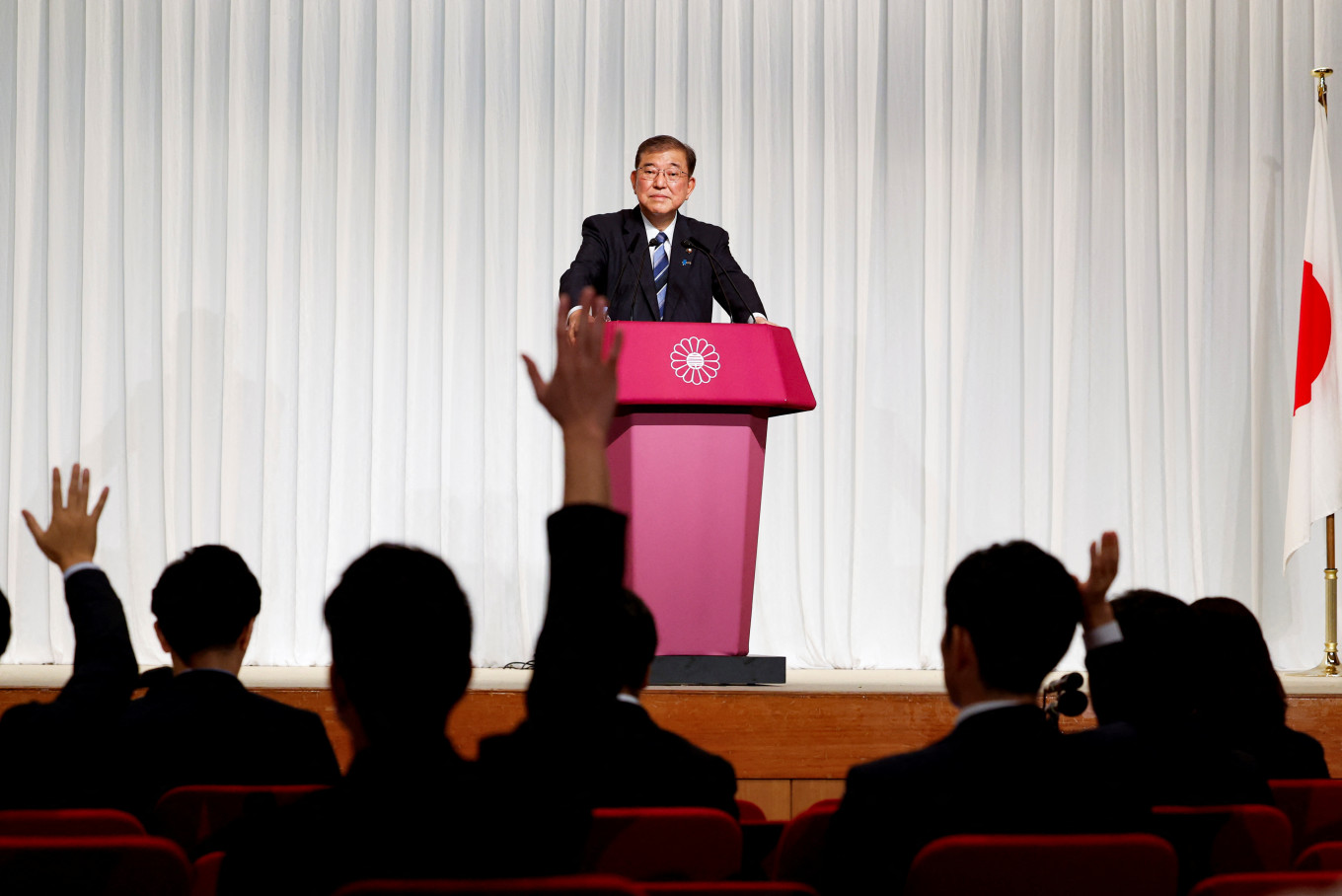Popular Reads
Top Results
Can't find what you're looking for?
View all search resultsPopular Reads
Top Results
Can't find what you're looking for?
View all search resultsNo to Asia’s NATO
Even if he does stand the test of time, like his predecessor Fumio Kishida, Ishiba does not have much to offer in order to lure ASEAN leaders amid Japan’s declining economic power and the rising economic scale of ASEAN.
Change text size
Gift Premium Articles
to Anyone
W
hen introducing himself to ASEAN leaders during their annual summit, which will be held in Vientiane next week, newly elected Japanese Prime Minister Shigeru Ishiba should refrain from promoting his grand idea to establish an Asian version of the North Atlantic Treaty Organization (NATO) in order to avoid self-humiliation.
As Japanese media and pollsters have predicted that his government could be short-lived, it is likely that his hosts will give him a warm welcome as a courtesy without expecting much from him, since the ASEAN leaders are not sure how long he can survive,
Even if he does stand the test of time, like his predecessor Fumio Kishida, Ishiba does not have much to offer in order to lure ASEAN leaders amid Japan’s declining economic power and the rising economic scale of ASEAN. All nations in the region still consider Japan their major investment source and key trading partner, but ASEAN now has greater bargaining power.
Japan, as well as other major powers, has repeatedly assured that ASEAN will remain the center of the Indo-Pacific. But words and actions are two very different things. Western countries and their allies, including Australia and Japan, want ASEAN to join them in their fight against China's rise.
Japan will hold a snap election on Oct. 27, with Ishiba hoping to win enough support from a public, which has little trust in his ability to govern as even the ruling Liberal Democratic Party (LDP) half-heartedly backs him.
The idea of an Asian NATO is aimed at unifying all available forces to band together against China, which would be considered very offensive for the 10-member ASEAN. Ishiba expects a new military alliance would be strong enough as a deterrent against China, Russia and North Korea, each of whom wield nuclear power.
Geographically, it does not make sense for Japan to join NATO, though its leaders have often considered the idea. Japan is a member of the informal military alliance Quad, which also includes the United States, India and Australia. Tokyo has also considered becoming the fourth member of the AUKUS military pact along with Australia, the United Kingdom and the US.
ASEAN has more choices than the US and its allies, including Japan, may think, and Japan does not currently have an offer too lucrative for ASEAN to resist.
ASEAN ranks as the third-largest economic power in Asia after China and Japan, and is the fifth-largest economy in the world after the US, China, Germany and Japan.
Japan lost its position as the world’s third-largest economy to Germany late last year, and is now in fourth position after the US, China and Germany. Japan was the second-largest global economy until 2010, when China pulled ahead.
For ASEAN, Japan is the fourth-largest trading partner, accounting for only 7 percent of the region’s total exports and imports. Additionally, Japan’s share of foreign direct investment has dropped to just 6 percent.
Meanwhile, China, the US, the European Union and Japan are the largest trading partners for ASEAN, and since the beginning of this year, ASEAN has overtaken the EU as China's top trading partner.
ASEAN will not buy into Ishiba’s idea about an Asian NATO. As a group, ASEAN needs Japan as a reliable trading and economic partner, not a military ally that would only exacerbate tensions in the region.











